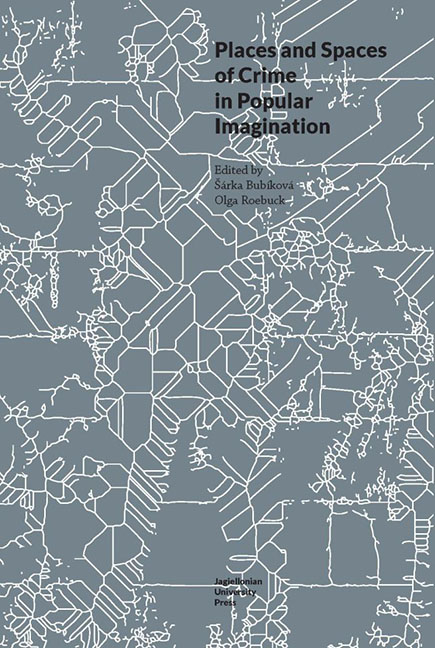Book contents
- Frontmatter
- Contents
- Introduction
- London in the Cormoran Strike Series
- London as the Murderer’s Playground in Sharon Bolton’s Now You See Me
- Through the Looking-Glass: Space and Place in Simon Mawer’s The Girl Who Fell from the Sky
- Murderous Academics: Territoriality in Cynthia Kuhn’s Academic Mysteries
- Suburbia and the Subversion of Its Values in 1950s Crime Comics
- Wilderness in Dana Stabenow’s and Nevada Barr’s Crime Fiction Series
- “I Am the Wave that Sinks into the Ocean”: The Sense of Place in The Affair
- Index
- Notes on the Contributors
London in the Cormoran Strike Series
Published online by Cambridge University Press: 13 October 2023
- Frontmatter
- Contents
- Introduction
- London in the Cormoran Strike Series
- London as the Murderer’s Playground in Sharon Bolton’s Now You See Me
- Through the Looking-Glass: Space and Place in Simon Mawer’s The Girl Who Fell from the Sky
- Murderous Academics: Territoriality in Cynthia Kuhn’s Academic Mysteries
- Suburbia and the Subversion of Its Values in 1950s Crime Comics
- Wilderness in Dana Stabenow’s and Nevada Barr’s Crime Fiction Series
- “I Am the Wave that Sinks into the Ocean”: The Sense of Place in The Affair
- Index
- Notes on the Contributors
Summary
In considering London as a literary crime scene, one’s imagination is most likely caught wandering the notorious dimly lit network of foggy Victorian lanes in Arthur Conan Doyle’s classics. This is, however, only a small part of the whole picture. London is a multicultural and multifaceted city pulsating with life and so is its literary image in crime fiction. On the other hand, Julian Earwaker and Kathleen Becker, two writers who explore the literary cartography of British crime fiction, suggest that while the suburbs or London reflect the city’s contemporary face, its centre is somehow locked within the Golden Age tradition of crime fiction and is waiting yet to be further explored by modern crime writers (Earwaker and Becker 2002: 143). Joanne (J.K.) Rowling, who uses the pen name Robert Galbraith for her crime fiction, seems to have taken that chance, setting her crime series predominantly in central London, even featuring its most famous sights such as the Houses of Parliament. When the first book of the detective series came out, reviewers rather obviously focused on comparisons between Rowling’s Harry Potter series with her whodunit. In avoiding this obvious and rather fruitless path, however, quite a lot of valuable analytical material can be found, especially if Rowling’s ability to create a complex setting and capture its atmosphere is acknowledged. The four novels comprising the Strike Series by Robert Galbraith (the crime pen name of Rowling will be used further in the text) revolve around the central character of Cormoran Strike – an uprooted ex-Oxford, ex-military, ex-engaged, ex-Cornish ex-boxer – who is trying to establish a new career as well as new life in London. Bertrand Westphal’s geocritical approach is based on the idea that: “Our understanding of a particular place is determined by our personal experiences with it, but also by our reading about others’ experiences, by our point of view, including our biases and our wishful thinking” (Westphal 2011: x). Strike’s volatile identity embracing a number of locations, institutions, professions or social groups allows the author to apply a similarly varied point of view.
- Type
- Chapter
- Information
- Places and Spaces of Crime in Popular Imagination , pp. 13 - 26Publisher: Jagiellonian University PressPrint publication year: 2021



